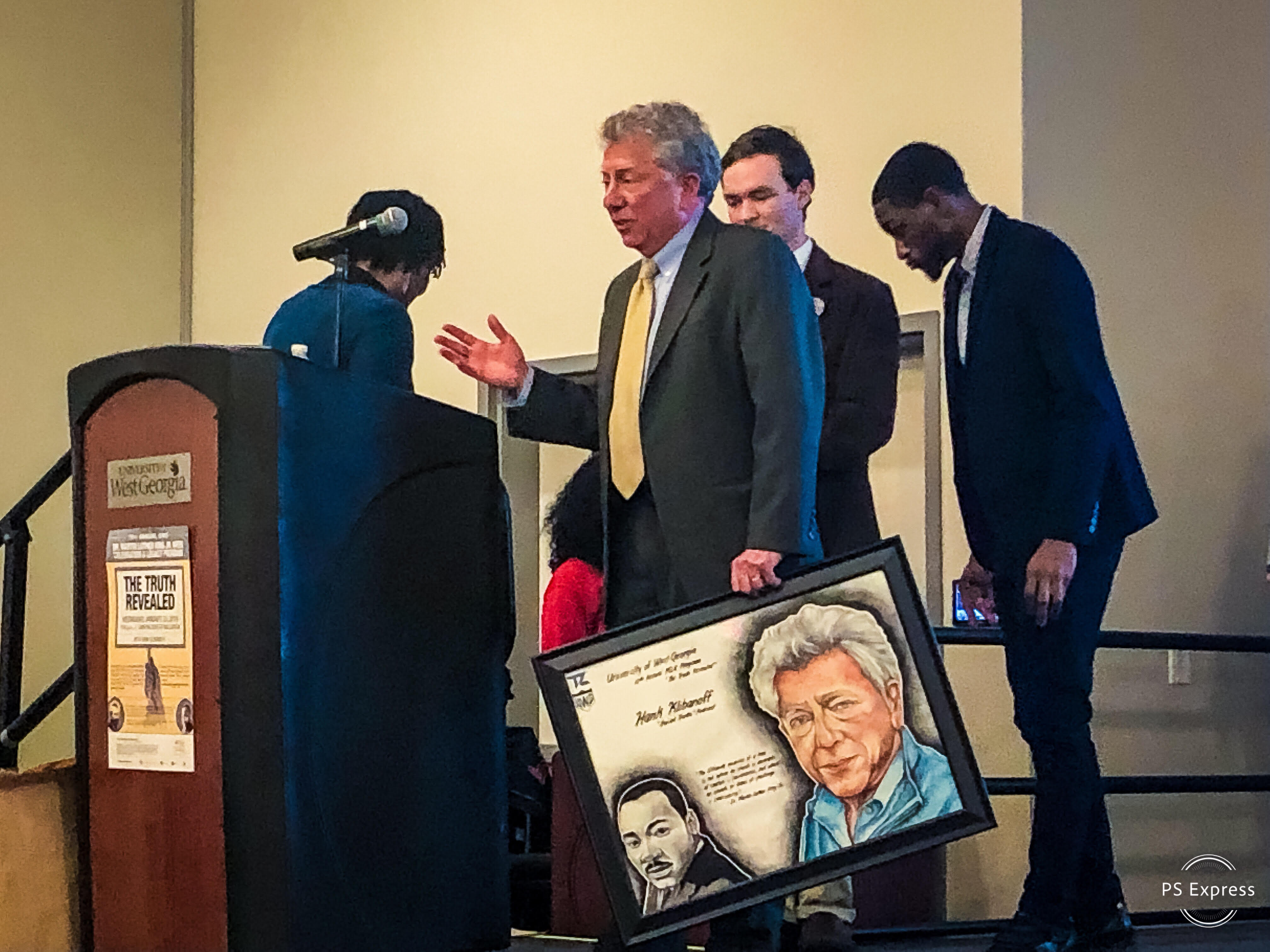UWG held its 10th Annual Dr. Martin Luther King Jr. Celebration on Jan. 23, 2019.
The theme of this year’s event was “The Truth Revealed”. This title was fitting for the topics discussed by the keynote speaker, Hank Klibanoff.
Klibanoff is a veteran journalist, having most recently worked at the Atlanta Journal Constitution. A co-author of the Pulitzer Prize-winning book The Race Beat; a current Professor of Practice at Emory University, working with students enrolled in The Georgia Civil Rights Cold Cases Project; as well as the creator and host of Buried Truths, a podcast drawn from his and his students’ work on the cold cases studied in class, his journalistic career has proven to be plentiful and impactful.
In his appearance at the Campus Center Ballroom, Klibanoff spoke of the many cases he and his students investigated: Clarence Pickett, James Brazier, A.C. Hall, Isaiah Nixon — all whose deaths were at the hand of an unjust system.
“Even though many of those perpetrators are dead, those stories aren’t and we ought to continue to prosecute them even if it’s in a newspaper or in a history course, or some other form,” said Klibanoff. “They need to be prosecuted and brought to justice. The justice might be simply getting the story out.”
The Cold Cases Project did more than get the story out for Isaiah Nixon’s case, however.
In 2015, three students traveled to Montgomery County, Georgia, where Nixon was shot in cold blood for exercising his right to vote. The students found not a trace of evidence of Nixon’s death in the newspapers from the day, and decided to pay tribute to Nixon by visiting the Old Salem Cemetery, where it was assumed Nixon was buried in an unmarked grave. Upon further investigation, one student found the marked grave of Nixon, caked underneath layers of mud, which had been lost for 67 years.
Though this discovery was a triumph for the students, Klibanoff, and Nixon’s family, there is still work to be done with the other cold cases.
“I hope people just become acquainted with their history,” said Klibanoff. “And understanding history as it was, will help them understand who we are.”
You may also like
-
UWG’s Ingram Library Hosts Pop-Up Study Spot to Help Students Prepare for Finals Week
-
UWG Offers Mental Health Support And Academic Services To Maintain Student Success During Finals Week
-
UWG Alumnus Shares His Experience Exploring the Underground Flood Channels of Las Vegas
-
Georgia Students Simulate the Struggles of Dementia
-
UWG PR Students Score a Georgia Power Tour at Atlanta Corporate Office
